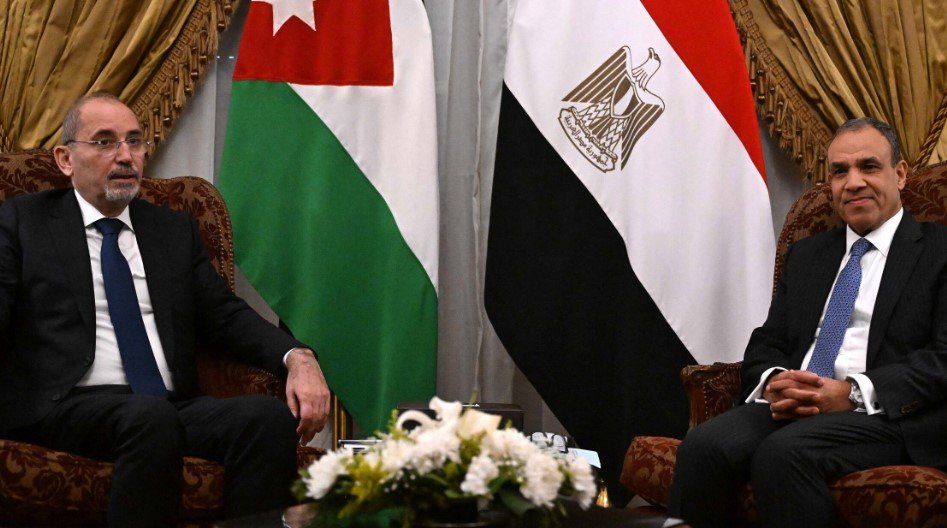Badr Abdelatty presses US and Qatar coordination, points to shifting global mood as pressure builds on Israel over Gaza war
Egypt isn’t mincing its words anymore. Cairo’s top diplomat made it crystal clear on Sunday night that the days of dancing around the Palestinian question are over—and so, perhaps, is the patience of the region.
Speaking candidly during a national TV appearance, Egyptian Foreign Minister Badr Abdelatty declared that true peace in the Middle East won’t happen unless the world finally deals head-on with the Israeli-Palestinian crisis. His message to Israel? There is no security without justice for Palestinians.
That warning, coming from a country that still honors its landmark peace treaty with Israel, hit differently this time.
Cairo’s Ceasefire Drive Gains Traction
Abdelatty confirmed that Egypt has spent nearly two years pushing tirelessly behind the scenes to end the war in Gaza. The momentum, he said, is starting to swing in Cairo’s favor.
“The conditions today are more conducive than ever,” he told the ON TV program Kelma Akhira. “There is greater acknowledgment—even from the US—of Egypt’s broad vision for regional stability.”
His comments land at a pivotal moment. The Gaza war, triggered by the events of October 7, 2023, has dragged on for over 600 days. Truce talks have flared and fizzled. But Cairo hasn’t given up. Alongside Qatar and the United States, Egypt continues to negotiate under the radar—dodging flare-ups, diplomatic snubs, and shattered deals.
And now, according to Abdelatty, a 60-day ceasefire might finally be within reach.

US Diplomacy Back in the Spotlight
One name came up repeatedly during Abdelatty’s remarks: America.
He openly acknowledged the key role Washington has played—particularly during the brief January 19 ceasefire that, while short-lived, showed “what’s possible when the US throws its weight behind peace,” he said.
At the time, US mediation helped bring about a temporary halt to hostilities, opening up aid corridors and, briefly, lowering temperatures across the region. But things unraveled quickly.
Abdelatty didn’t mince words about that either.
“Israel broke that truce without justification,” he said. “Despite the positive momentum, they resumed the bombing. It was a turning point—and not in a good way.”
Still, the Egyptian minister held back from blame games, instead pressing for more consistent American engagement going forward.
Global Voices Are Shifting
Abdelatty stressed that the tide of international opinion is changing—and fast. Where once regional peace was discussed in vague terms, now there’s a growing sense of urgency. The Palestinian issue, long pushed to the margins, is returning to the diplomatic center stage.
He pointed out that Egypt’s view—that peace depends on solving the Palestinian crisis—is no longer an outlier.
“European countries are echoing this more strongly,” he said. “Even within the US, there’s acknowledgment that the current path is unsustainable.”
And that shift isn’t just rhetorical. Several EU members have made high-profile public statements in recent weeks pressing Israel to pull back and rethink its strategy in Gaza.
-
Spain and Ireland formally recognized Palestine as a state in May.
-
Norway linked future arms trade with Israel to progress on Palestinian rights.
-
France and Germany issued rare joint statements urging restraint.
The Clock Is Ticking, and Cairo Knows It
In Abdelatty’s words, there’s no room left for political games or drawn-out debate.
“The crimes and systematic starvation we’re seeing in Gaza—these aren’t just headlines. They’re everyday reality,” he said. “We are running out of time.”
This hard tone underscores Cairo’s current mood. Egypt is tired. Tired of endless loops of violence and failed diplomacy. Tired of being the middleman in a fight that never seems to end.
But it also signals confidence. Abdelatty’s phrasing suggests that behind the scenes, more is happening than meets the eye. There’s movement. Quiet, but significant.
Here’s how the potential ceasefire framework reportedly shapes up:
| Proposed Gaza Ceasefire Deal | Details |
|---|---|
| Duration | 60 days |
| Key Mediators | Egypt, Qatar, United States |
| Humanitarian Access | Full aid corridor opening |
| Reconstruction Phase | Begins after 2nd week |
| Prisoner Swap Talks | Likely included |
Suez Canal Security Also in the Picture
One thing not discussed directly in the interview—but looming large in Egypt’s calculations—is Suez Canal security.
With Red Sea shipping targeted by Houthi missiles in solidarity with Gaza, and Sinai security always fragile, Egypt’s national interests are firmly linked to stability next door.
An extended war in Gaza means economic pain for Egypt too. The Suez Canal has already lost traffic and revenue amid the wider conflict. Inflation is biting. Tourism, once rebounding, is wobbling again.
Cairo knows it can’t afford a new round of escalations.
A Cold Peace, Getting Colder?
Despite the warning tone, Abdelatty reiterated that Egypt is still honoring its decades-old peace treaty with Israel. For now.
But he didn’t hide the strain.
“The brutality we’re witnessing in the West Bank, the relentless bombardment in Gaza—it’s poisoning everything,” he said. “It’s affecting how we deal with each other. It’s affecting the people on both sides.”
That’s a big statement from a government that has, for years, tiptoed around Israeli criticism in public. It signals that something is shifting not just between governments—but in the political temperature inside Cairo too.
Even Egyptian state media, once cautious on such matters, has been more openly critical of Israeli actions in recent months.
Trump Looms Over Talks Again
In a twist that feels all too familiar, former US President Donald Trump has waded into the discussion. In recent public remarks, he hinted at a major Gaza deal coming soon, one he claimed he’d help broker if re-elected.
Asked about this, Abdelatty was unusually diplomatic. He didn’t dismiss Trump’s influence, but redirected the credit to the current White House.
“That January truce? It wouldn’t have happened without the Biden administration’s intervention,” he said.
Still, many in Cairo are watching US politics with growing anxiety. Another shift in Washington could, once again, throw everything into chaos.
